by Eileen Kinch
Originally published on July 3, 2024, in Anabaptist World, and reprinted with permission.
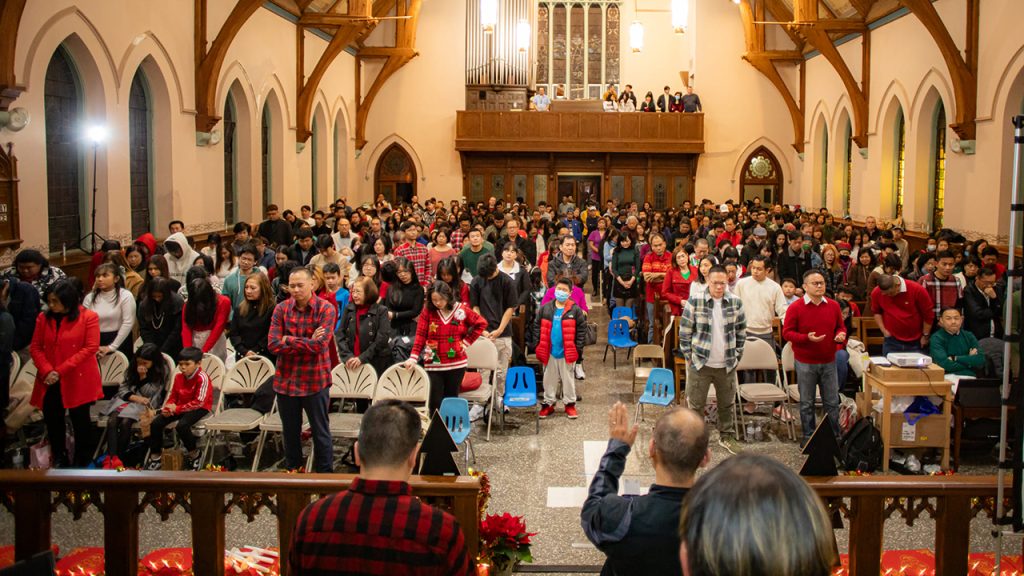
Indonesian Mennonites began coming to the United States in the 1980s, and their numbers increased after 1998. Today 19 Indonesian Mennonite congregations are located on the West and East coasts.
Some of their people were already Mennonite, part of the Anabaptist movement in Indonesia that counts 107,000 members today. Others were not.
One who wasn’t is Aldo Siahaan, pastor of Philadelphia Praise Center. The congregation was independent when Siahaan founded it in 2005. Today, Siahaan is a leader and connector of Indonesian Mennonites in the United States.
Of the eight Indonesian congregations affiliated with Mosaic Conference of Mennonite Church USA, almost all joined because of a connection with Siahaan. Indonesian churches now make up more than 10% of Mosaic.
Siahaan learned about Mennonites when a member of the church asked if his Mennonite pastor from Indonesia could visit Philadelphia Praise Center for a few weeks. That pastor was Bastian Yosin, a Mennonite pastor from Java. After learning the congregation was unaffiliated, Yosin recommended Siahaan contact Franconia Mennonite Conference (now Mosaic after joining with Eastern District Conference).
Following Yosin’s advice, Siahaan went to the Franconia Conference office. Staff invited him to the next MC USA assembly in San Jose.
Virgo Handojo, pastor of Jemaat Kristen Indonesia Anugerah (Indonesian Christian Congregation of Grace) in Sierra Madre, Calif., did not know Aldo Siahaan until they met in San Jose in 2007.
Handojo formed the Indonesian Mennonite Association, which includes Handojo, Siahaan and Beny Krisbianto, pastor of Nations Worship Center in Philadelphia. The association is a member of MC USA’s Racial Ethnic Council, which brings the perspectives of people of color to MC USA leadership and planning.
But the relationship between Handojo and Siahaan bore other fruit.
In 2017, Jemaat Kristen Indonesia Anugerah was looking for an affiliation after Pacific Southwest Conference reorganized. Handojo’s congregation, which numbers about 50, could have chosen to join the five Indonesian congregations that remain affiliated with the Jemaat Kristen Indonesia Mennonite synod in Indonesia. Instead, it joined Mosaic, as did two other California congregations: International Worship Church in San Gabriel and Immanuel International Church in Colton.
When Handojo came to the U.S. to attend Fuller Seminary in 1987, he intended to return to Indonesia after completing his education. Handojo, then a member of the JKI synod in Indonesia, desired formal study to increase his effectiveness as a minister there. But “God closed the door” to his returning to Indonesia, Handojo said in an interview.
He got involved with Mennonites in the United States after he received a phone call from Mennonite Board of Missions, a predecessor of Mennonite Mission Network. Someone had nominated him to serve on the board of directors. “To this day, I don’t know who nominated me,” he said.
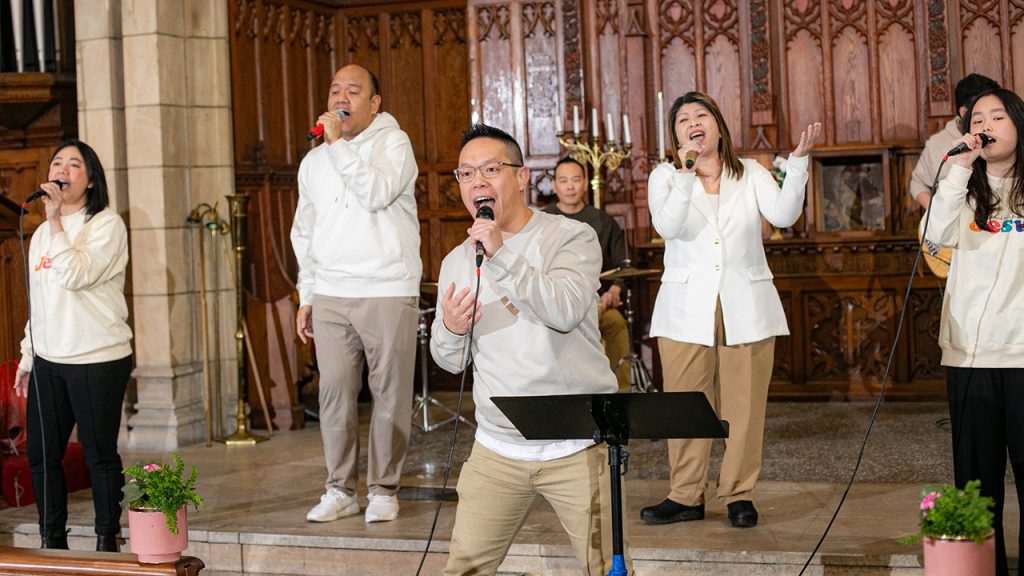
Serving on a mission board appealed to him. Handojo was influenced by Adi Sutanto of the JKI synod, who believed in “planting a church everywhere in the world,” Handojo said. “After that [phone call], I became deeply involved in Mennonite Church USA.” He served on the board for more than 10 years.
Not all Indonesian Mennonites in the U.S. share Handojo’s experience. He came to the U.S. for education, but others, including Siahaan, came fleeing riots in 1998.
The riots began as student protests to economic conditions, but the military incited the looting of Chinese-descended Indonesian businesses and violence against women. Many Chinese-descended Indonesians are also Christians.
Indonesia is a Muslim-majority country, with Christians comprising 11% of its population. The country’s constitution allows freedom of worship for Christians, but Siahaan is grateful for the freedom he experiences in the U.S. In Indonesia, he was nervous about going to church. “Something could happen,” he said.
The riots also played a role in the lives of Graciella Odelia’s parents, who moved with Odelia and her sister Marciella to the U.S. in 2011. Amid the violence, their parents were locked inside a building that was about to be burned down.
Odelia, recently licensed to youth ministry at Nations Worship Center, came to the U.S. when she was 10. Her family made NWC their church home. She went to Dock Mennonite Academy and Eastern Mennonite University and is earning a master’s degree in Christian leadership at Eastern Mennonite Seminary.
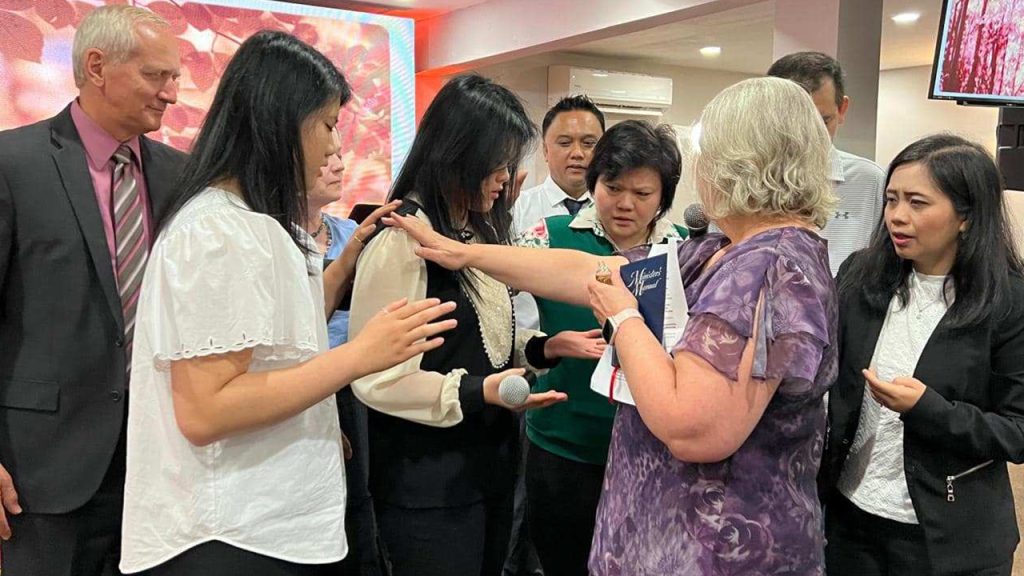
When Beny Krisbianto, the pastor of NWC, felt a concern for the next generation, he and his wife and co-pastor, Angelia Susanto, tapped Odelia to help with youth ministry. Odelia now organizes a weekly youth service on Saturday afternoons. The youth service, conducted in English, draws youth from other Indonesian Mennonite congregations nearby and also a few youth who have no church home.
NWC worships in Indonesian, with interpretation for English speakers, on Sunday morning. But the youth service is in English because most of the youth were born in the U.S.
“They only speak a few words of Indonesian,” Odelia said. Many youth hear Indonesian spoken at home by their parents. “They still have some practice but [not] complete fluency,” she said.
Marciella, who helps with the youth service when she is home on break from EMU, added that sometimes youth prefer not to listen if the service is in Indonesian.
Odelia shared her testimony in Indonesian before being licensed for ministry but found the experience challenging. She volunteers as an interpreter at a health clinic to improve her Indonesian sentence structure and to increase her formal language skills. But she has another tool. “Duolingo helps,” she said with a laugh, referring to a language-learning app and website.
The youth at Nations Worship Center help to pack grocery bags for the congregation’s service ministry. The bags support members and attenders struggling financially. During COVID-19, many Indonesians lost factory and restaurant jobs, and the grocery distribution reached 90 bags weekly of eggs, noodles, rice and canned goods. Today the situation is more stable, and NWC is preparing only 30 bags.
But the congregation finds itself helping another wave of Indonesian immigrants. Many are seeking better financial opportunity. Krisbianto said that the pandemic limited immigration and travel, so many are making the choice to come now.
Siahaan said motivation for current immigration may have a political angle. Indonesia’s newly elected president, Prabowo Subianto, played a major role in the 1998 riots.
“There is uncertainty,” Siahaan said, explaining that some people want to leave Indonesia “before something bad happens.” Instances of Muslim individuals disrupting church services have occurred in 2023 and 2024.
Krisbianto, who came to the U.S. in 2001 for education, felt a call to minister to immigrants. His ministry began as social work, since he interpreted for Indonesian patients at a health clinic. One person said to him, “Pastor, where is your church?” Krisbianto replied that he was trying to plant one. Some people at the clinic said they would like to come.
The church began with nine people in 2006. The offering was $90 — $10 short of the rent. Krisbianto added $10 to make the ends meet. “By the grace of God, [the church] is growing,” he said. Nearly 300 come to worship during three services.
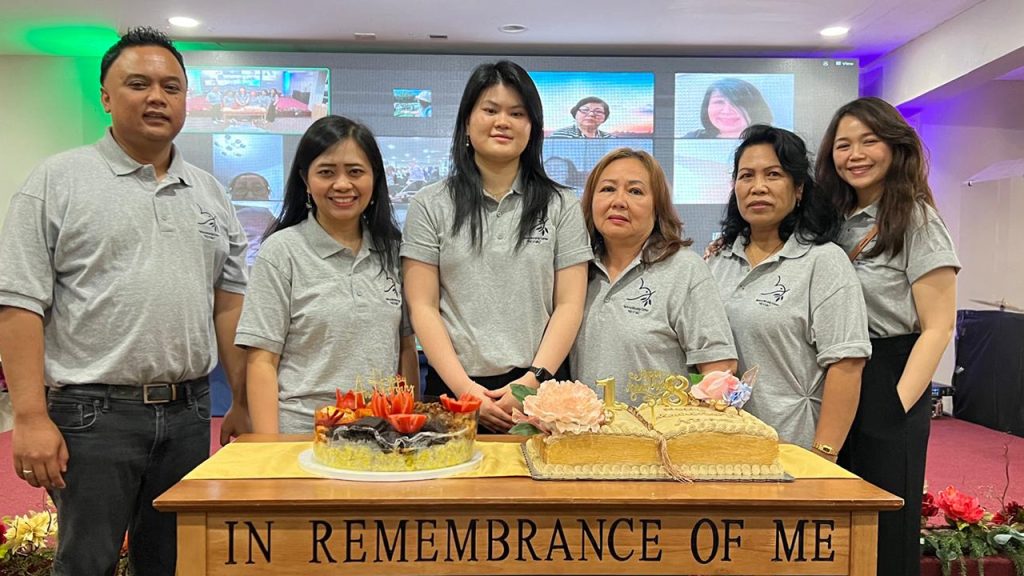
Yet being an immigrant in another country is challenging. Uprooting oneself from family is hard. Legal processes can be slow and difficult, and adjusting to a new language and culture takes time.
For Siahaan, feeling happy about the move comes in retrospect.
“After I do my flashback, yes [it is worth it]. My relationship with Jesus is stronger here,” Siahaan said. He has no close family nearby, so he must “really depend on God.” But he is satisfied with his life in the U.S.: “God gave me so much.”
Many Indonesian Mennonites gravitate toward Anabaptism’s Christ-centered message and its reconciling work. Krisbianto said Indonesians did not receive a warm welcome from some neighborhoods in Philadelphia. But the Mennonites in Franconia Conference were different.
“They’re very nice, calm, simple, humble. And they’re very welcoming,” Krisbianto said. “We feel like we are part of their families.”
Stephen Kriss, Mosaic Conference’s executive minister, appreciates what the Indonesian congregations bring to the conference.
“The vibrancy of worship while holding together mutual care, evangelism and justice-seeking that occur within Indonesian context continues to influence our Mosaic community broadly,” he said.
Of the 19 Indonesian Mennonite congregations in the U.S., eight are affiliated with Mosaic. Six remain with a Mennonite synod in Indonesia, and others joined conferences such as Pacific Southwest and LMC.
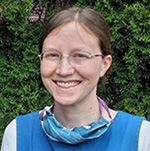
Eileen Kinch
Eileen Kinch is digital editor at Anabaptist World. She holds a Master of Divinity degree, with an emphasis in the Ministry of Writing, from Earlham School of Religion. She and her husband, Joel Nofziger, who serves as director of the Mennonite Heritage Center in Harleysville, live near Tylersport, PA. They attend Methacton Mennonite Church. Eileen is also a member of Keystone Fellowship Friends Meeting in Lancaster County.

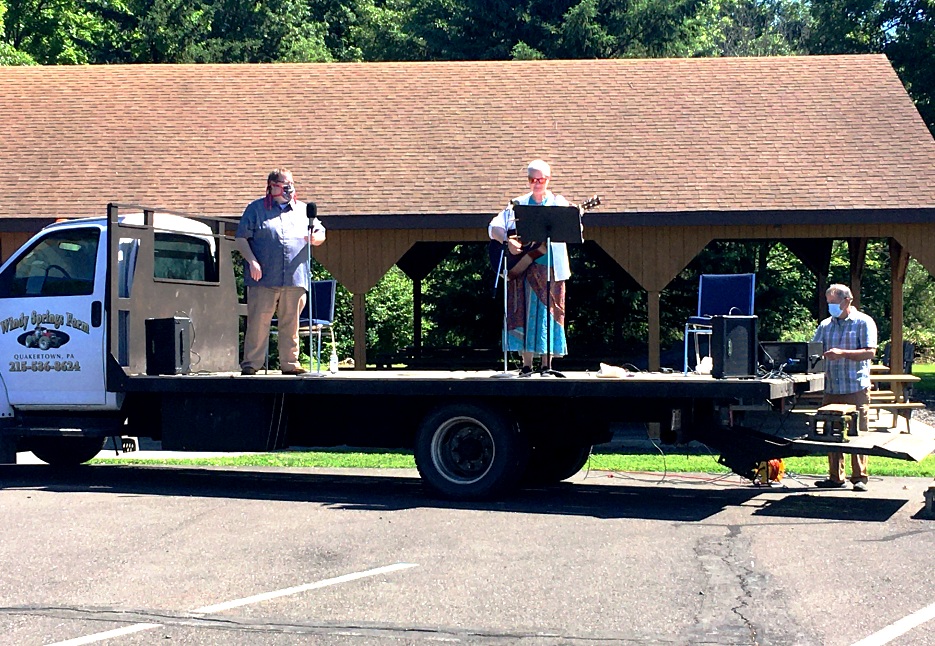
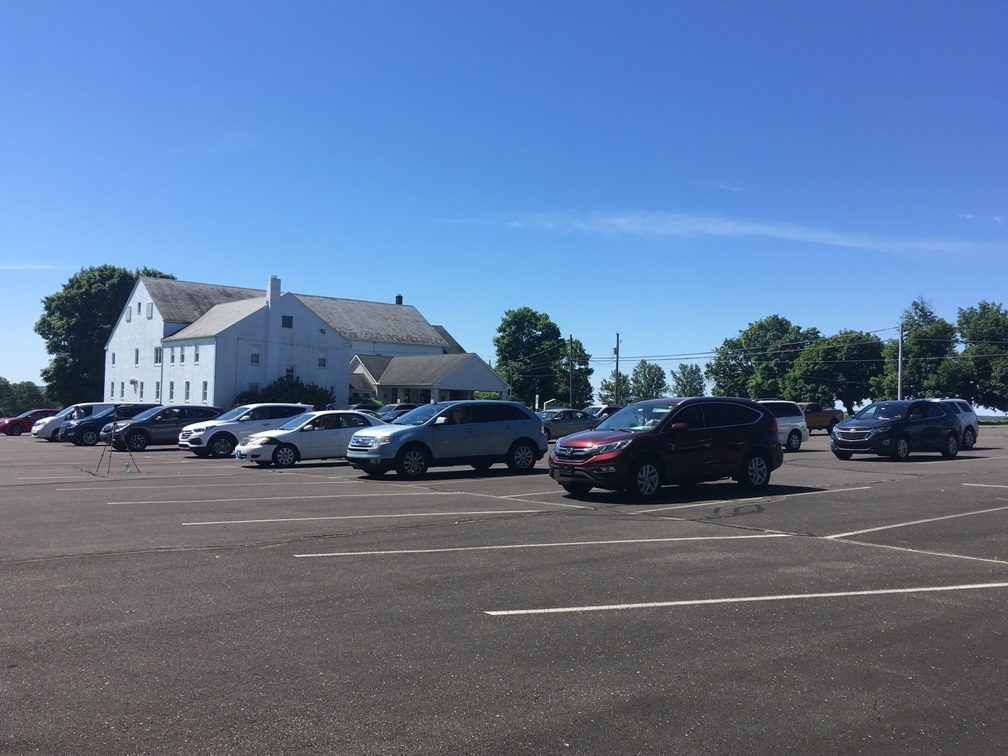
 I’ve been in a lot of meetings where there’s discussion about decline in the church. But every time I hear it, I think about the churches I work alongside. While I know numbers are down in a lot of places, that is not the reality in most of Franconia Conference churches in Allentown and Philadelphia. In South Philadelphia alone, among three conference churches we have 500 members, almost 10% of the conference. This past Sunday I spent the day visiting these congregation.
I’ve been in a lot of meetings where there’s discussion about decline in the church. But every time I hear it, I think about the churches I work alongside. While I know numbers are down in a lot of places, that is not the reality in most of Franconia Conference churches in Allentown and Philadelphia. In South Philadelphia alone, among three conference churches we have 500 members, almost 10% of the conference. This past Sunday I spent the day visiting these congregation.


